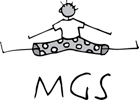Shoulder injuries are very common, with the most typical injury being ones related to the Rotator Cuff. As a result, we hear the term thrown around a lot. However, most people are unaware of what the Rotator Cuff actually is, and the role that it plays within the shoulder. The purpose of this article will be to help familiarise you with the Cuff and how Physiotherapy can help you with your rehabilitation when it is injured.
SO, WHAT IS IT?
The Rotator Cuff is a collection of four shoulder muscle – Supraspinatus, Infraspinatus, Subscapularis and Teres Minor – which work together to help stabilise the shoulder joint (see picture 1 above). The Rotator Cuff muscles all attach to the top of the Humerus bone, with their muscle belly located on the front and back of the Scapula (shoulder blade).
WHY IS IT IMPORTANT?
When we consider the biomechanics of the shoulder, the ball and socket design allows significant movement in all directions. However, with more movement capability comes less stability. The role of the Cuff is to help offset this loss of stability by helping to pull the ball into the socket more firmly. This effective stabilisation role is only made possible via their respective attachment points on the Humerus and Scapula.
WHY DO SO MANY PEOPLE TEAR THEIR ROTATOR CUFF?
Despite the muscles being effective at their roles, they are unfortunately quite small in size. When you factor in the massive forces that are produced with some shoulder movements (e.g. throwing, lifting, pulling, pushing), it becomes clear why they are prone to tearing. This risk factor increases with age, previous injury, the nature of the activities undertaken and occupation.
SIGNS AND SYMPTOMS OF ROTATOR CUFF INJURY
Many rotator cuff injuries are asymptomatic in nature. However, the typical sign of a cuff pathology is to experience some soreness or aching deep in the shoulder. This usually occurs when the arm is moved above shoulder height, but can also occur when lying in bed. A tear can be suspected if strength and/or range of movement is limited.
WHAT TO DO IF YOU SUSPECT A ROTATOR CUFF INJURY…
The safest and most important step would be to come in and have your shoulder assessed by one of the MGS Physios. This will ensure you don’t risk further damage to the shoulder and to help develop a plan of action moving forward. Our team has a strong relationship with many of the best Orthopaedic surgeons and Doctors on the Northern Beaches, thus if further opinion and assessment is needed, then we can help to refer you to the appropriate health professional
